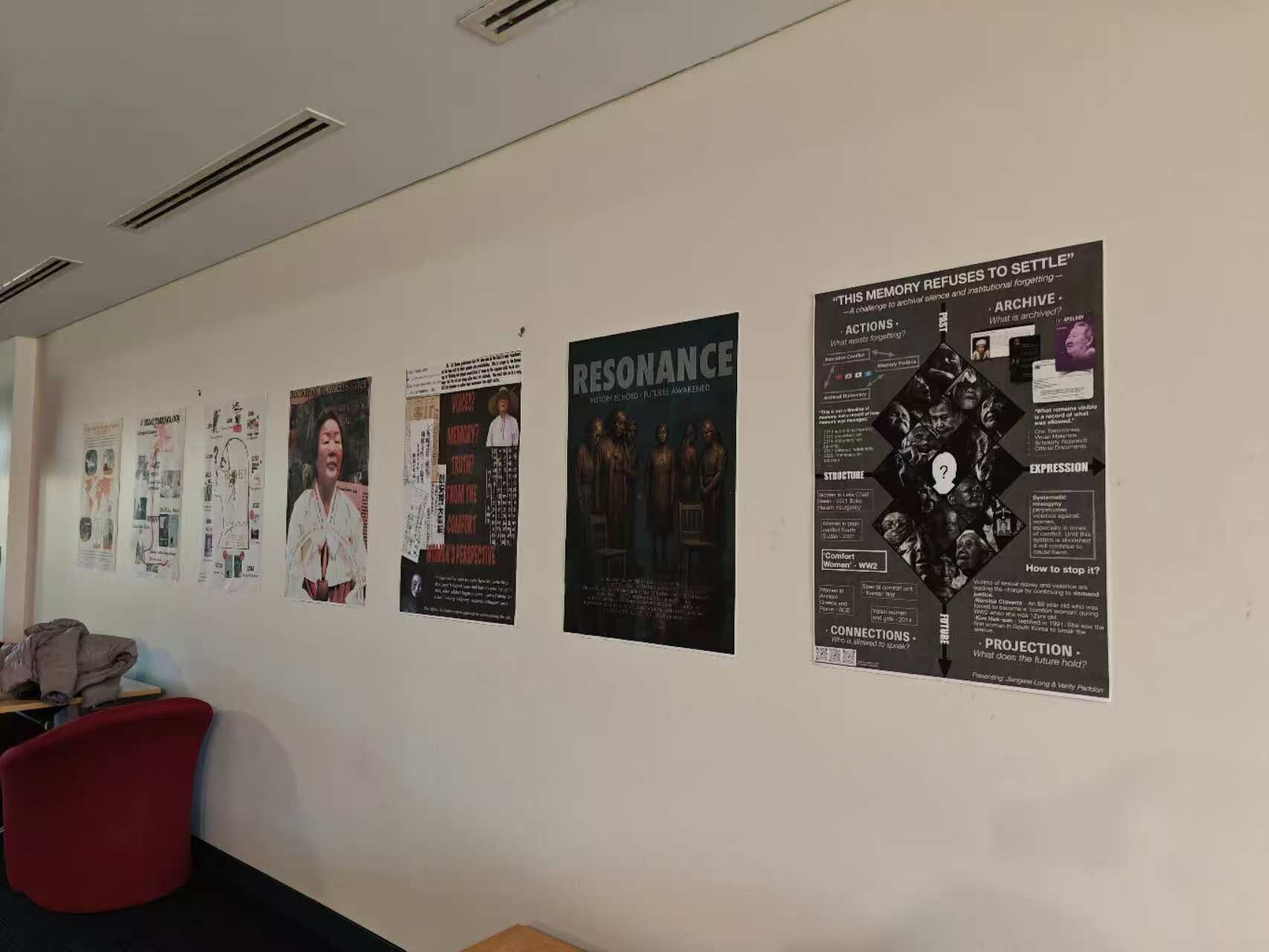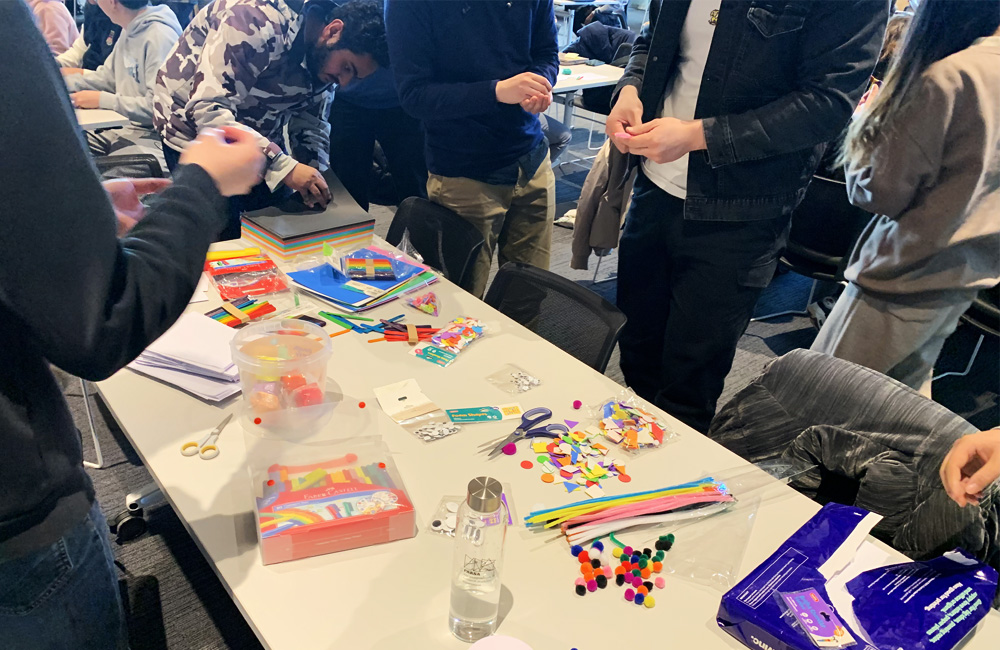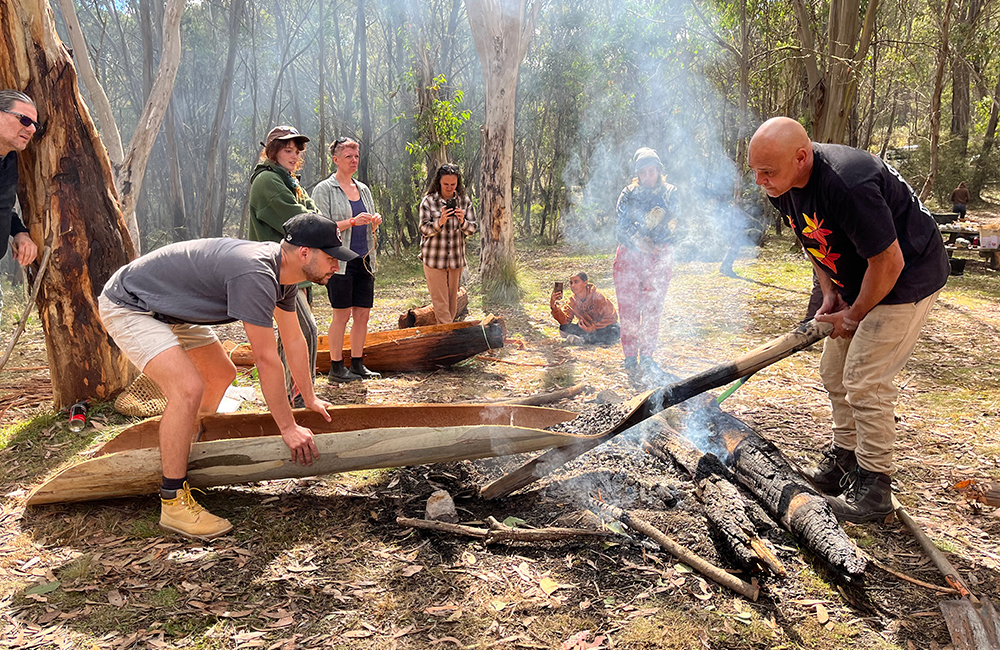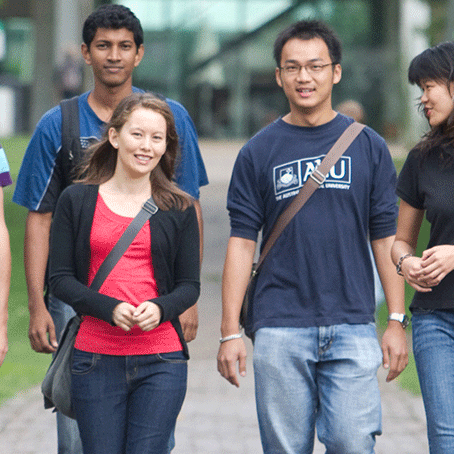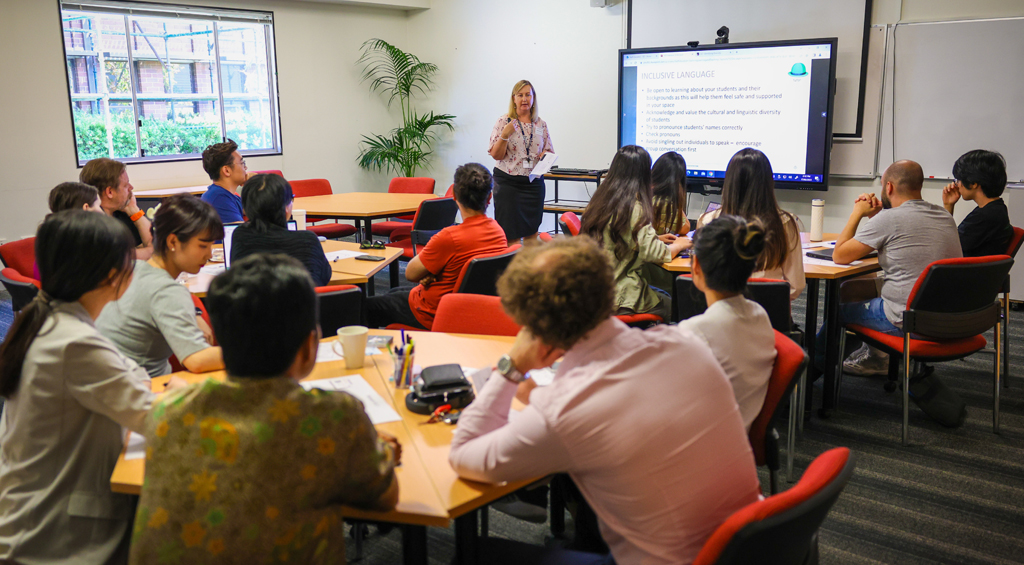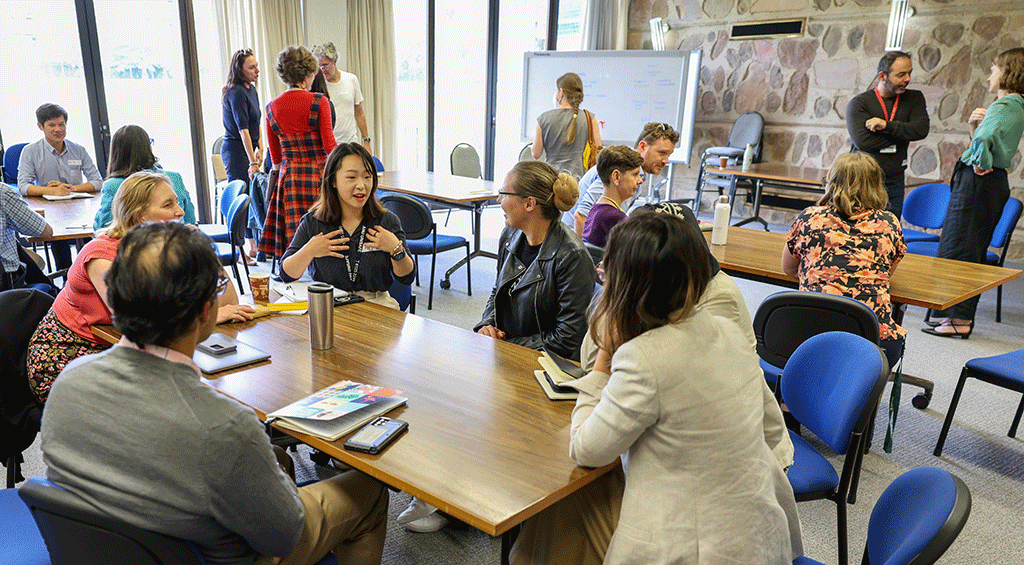Podcasts are gaining traction at the ANU College of Law as a way to share and promote research, develop community, enhance teaching and learning outcomes and create reusable resources quickly and cost-effectively. Here we share some insights into the different approaches taken by ANU College of Law academic staff and students. If you are interested in creating podcasts but think it is too complicated and requires a lot of high-spec equipment and skills, we have great news! You can create good-quality recordings using just a mobile phone. It helps to know someone who can assist with post-production, e.g. to adjust the volume levels or trim the recordings if needed, and a headset is recommended if you are recording on Zoom. The basic requirements and processes are really very simple.
Space Law – by Dr Cassandra Steer
What started as a project to promote Dr Cassandra Steer’s research and the new course on space law and governance at the ANU College of Law, has now gained international following which expands with each episode. College Education and Innovation Support Team (CEIST) member Dale Newbery provides all the production for Cassandra’s monthly podcast ‘Space Law’.
Cassandra interviews colleagues and associates whose work intersects with issues in space law, with a different theme each month. Dale and Cassandra collaborate on experimenting with different formats, and Dale has continually worked to improve the sound quality and availability on podcasting platforms.
Together with the college Marketing team, Dale has also worked hard to promote each episode and grow the listening community, which now included members of Australia’s Defence Force and government departments, as well as an interested public worldwide. The heat map below shows the global reach of the podcast which has over 3,000 downloads (as of early May 2021).

Listen now to the Space Law Podcast
Law of the Sea – by Professor Don Rothwell
When the COVID-19 pandemic meant that Professor Don Rothwell could no longer deliver his Law of the Sea Masters classes face-to-face, he instead developed podcasts to enable students to hear from invited guest lecturers. Don had no prior experience in creating podcasts or using the selected technology (Zoom). In terms of equipment, he “did go to the trouble of purchasing a podcast mic which I think helped to enhance the audio quality, but otherwise it’s just my laptop and using Zoom.”
Don recorded a series of eight podcasts of approximately 15 minutes each with colleagues from within the college, from government, a PhD student and a number of Law of the Sea experts from around Australia and New Zealand.
Here are some of Don’s tips on planning and recording:
- Identify your learning outcomes: what are the students going to get out of this 15-minute conversation that will enhance their learning or which could contribute to an assessable task?
- Identify suitable guests: capability, expertise, knowledge, ability to speak in a lively and in engaging fashion are all important. Not everyone is comfortable with recorded conversations.
- Questions: Determine a set of questions in advance in consultation with your guests.
- Time management: Advise your guests what the length of the podcasts will be and keep a timer close by when recording.
In the future, Don plans to work with colleagues around Australia and internationally to develop and share a series of 15-minute conversations between Don and other Law of the Sea experts so that all students studying the subject in Australia and New Zealand can benefit from these reusable resources.
You can listen to the full podcast interview on the CEIST Blog.
Sentencing – by Associate Professor Anthony Hopkins
Students in Associate Professor Anthony Hopkins’ Sentencing elective are immersed in an experiential learning process that requires them to plan, prepare and then deliver a sentencing submission in a mock-sentencing case as a prosecution or defence lawyer. In order to make their submission, students must understand the law of sentencing and also the legal, practical and ethical responsibilities of the role they have chosen. To help them develop this knowledge directly from the experts in the field, Anthony invited two experienced and well respected criminal lawyers, one a prosecutor and one a defence barrister, to create a podcast with him.
Anthony consulted Dale Newbery from CEIST for advice on the best approach and technology. After some successful testing he decided to use his iPhone because “it’s simpler than you imagine, if you’re a bit of a technophobe.”
A benefit of this approach is obviously the portability aspect, which meant that Anthony could create the recording with the barristers in their chambers and have an in-depth discussion about their roles in their own work environment. “I wanted them to give students a real sense of their responsibility as prosecution and defense. What’s your ethical framework? How do you really think about this process of sentencing?” These questions were explored in conversation over about 30 minutes.
The podcast was a valuable resource that the students could listen to in order to help them prepare for the experiential learning assessment in the course, “so that the ethics of their role would infuse itself into their performance.”
Anthony suggests making sure you switch your phone on airplane mode to avoid calls coming through during the recording and emphasises pre-planning which leads to a “tighter product where you’re getting quite a lot into 20 minutes. And I think it also adds to its potential to have a longer life.”
“The level of technology that we have available to us, enables a portable conversation and potentially opens up the world of experiences and people to your students if you take your phone with you and are alive to those possibilities.”
Tiger and Maddy Tackle Law School – by Maddy and Tiger
Stay tuned for a new podcast (currently in production) which is hosted by two ANU Law students, Maddy and Tiger. They will be sharing experiences and information about life at university and will also interview academics and professionals to give a glimpse into life after graduation.
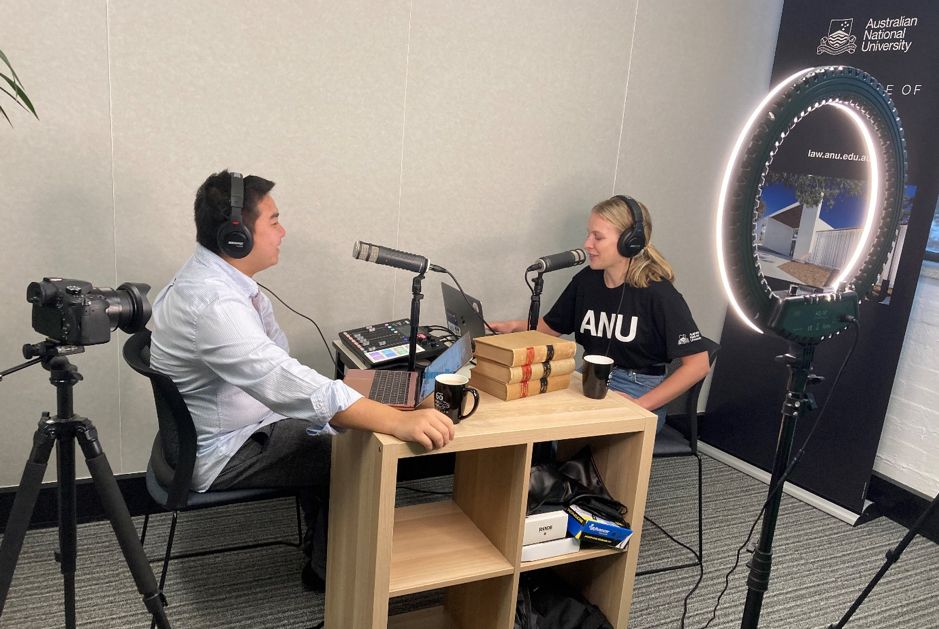
Sharon Elliot is an Educational Developer in the College Education and Innovation Support Team (CEIST) within the ANU College of Law.
